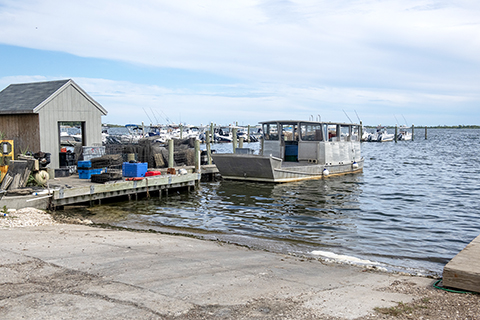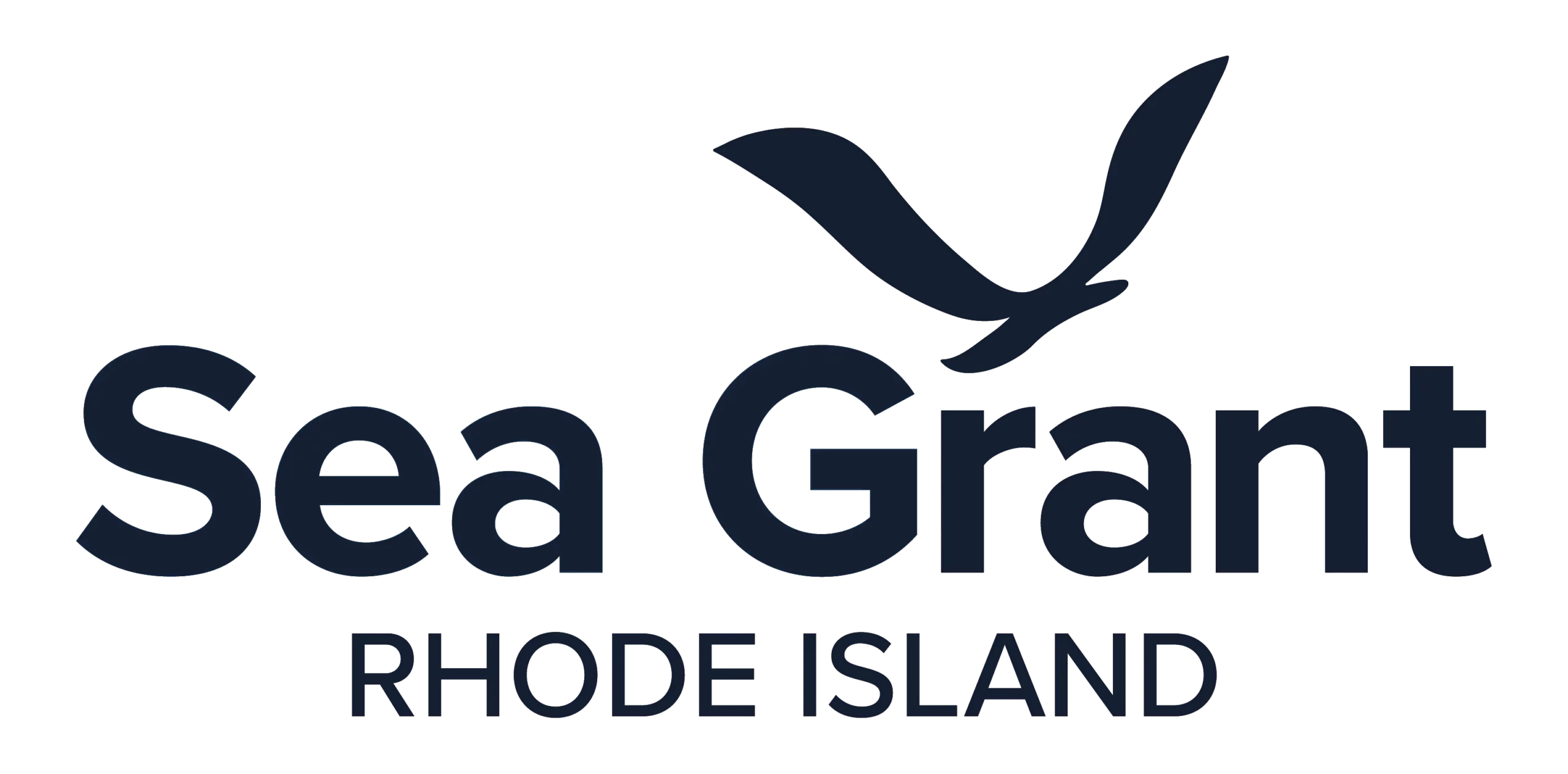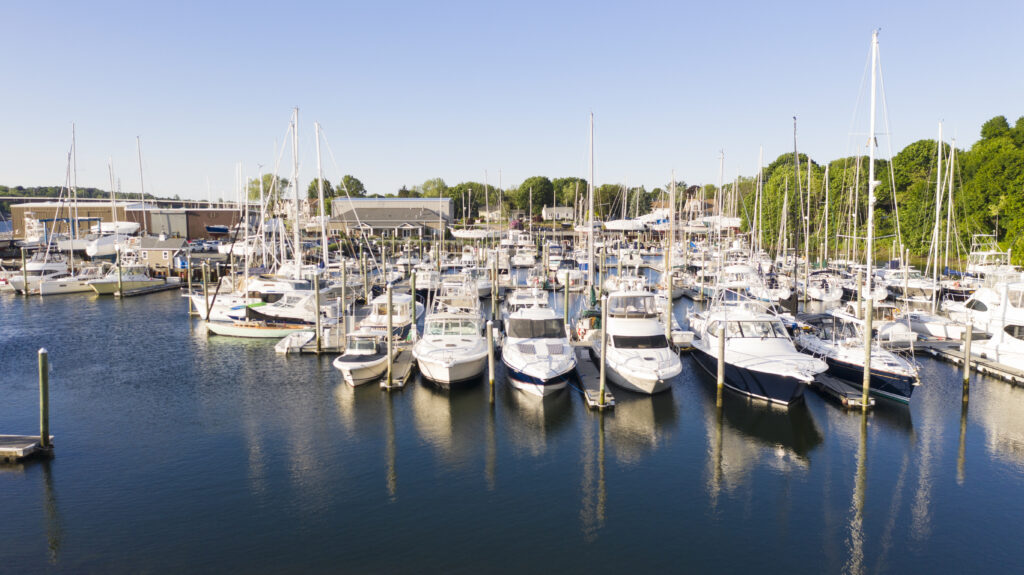Commercial Users’ Access to Rhode Island Marinas:
A Rhode Island Sea Grant Legal Program Research Summary
The competition for marina slips has become challenging in Rhode Island, in part due to the surge in recreational boating during the Covid-19 pandemic. A 2021 survey of Warwick marinas, for instance, found no vacant slips, a shortage that has led to an increase in slip fees. This has sparked concerns that aquaculturists and commercial fishers will be pushed out of marinas in favor of recreational boaters who can afford to pay more for slips.
A recent report by the Rhode Island Sea Grant Legal Program examines ways that Rhode Island can protect both the aquaculture and wild-caught fishing industries in the state by ensuring that commercial users continue to have access to marina slips.

Ninigret Landing Marina in Charlestown provides services and space for working and recreational vessels.
Rhode Island Sea Grant Legal Program and Marine Affairs Institute Research Attorney Ryan McCrorey examined options for the state to either require or encourage marinas to maintain commercial spaces. One option he researched was state legislation. Marinas use Rhode Island’s public trust resources—its tidal lands—and McCrorey found that given the breadth of the General Assembly’s authority over tidal lands, it likely could enact legislation requiring that marinas prioritize commercial boats when allocating open slips.
He also researched incentive programs in Maine, including one that promotes working waterfronts by reducing taxes on the portion of marina space that is primarily dedicated to commercial fishing and aquaculture vessels.
A program like this, McCrorey suggests, may be well suited to Rhode Island, where commercial and recreational boats often reside in the same marinas. These tax incentives could be considered statewide, or in individual municipalities. If the aquaculture and wild-caught fishing industries are interested in exploring these options, they may benefit from discussions with state representatives in the municipalities most affected by the lack of marina slips.
The entire article may be viewed here.
This report is a product of the Marine Affairs Institute at Roger Williams University School of Law and the Rhode Island Sea Grant Legal Program and is authored by Ryan McCrorey, Research Attorney. All errors and omissions are the responsibility of the Marine Affairs Institute. This report is provided only for informational and educational purposes and is not legal advice.

